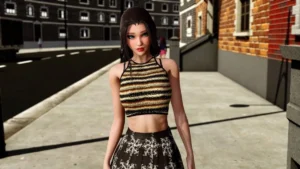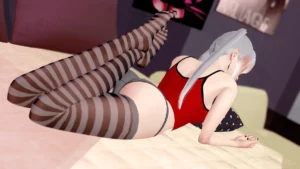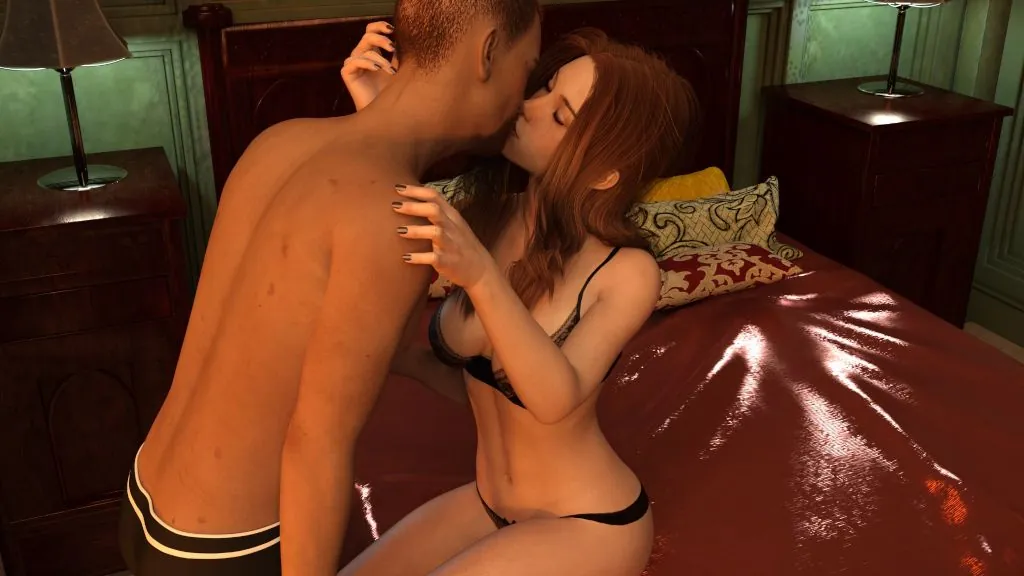
Fates Collide
Play Fates Collide
Fates Collide review
Explore the immersive world of Fates Collide, where relationships and choices shape your journey
If you’re searching for a visual novel that blends emotional storytelling with meaningful choices, Fates Collide stands out as a compelling experience. Developed by KatanaVN, this title invites you into the life of a protagonist who’s spent years moving from place to place, never putting down roots—until university life offers a chance for connection. With animated 3DCG scenes and a narrative that reacts to your decisions, Fates Collide is more than just a game; it’s a journey of self-discovery, friendship, and romance. In this article, we’ll explore what makes Fates Collide unique, from its engaging plot to its dynamic character interactions, and why it’s capturing the attention of visual novel fans.
What Is Fates Collide? Story and Setting Explained
Ever moved to a new town, packed up your life, and had to start over? That sinking feeling of being the new kid, the outsider looking in? Now, imagine that’s your entire childhood. 📦➡️🚚 That’s the exact emotional baggage you carry as you step into the world of Fates Collide, a game that masterfully turns the pain of constant goodbyes into a powerful story about the hellos that finally stick.
The Fates Collide story is, at its heart, an exploration of roots. Or rather, the profound lack of them. You play as a character who has spent their life in motion, their biography a checklist of different cities and schools. The game begins at a critical juncture: your arrival at Aethelgard University. This isn’t just another new school; it’s presented as your first and only real chance to stop moving and finally build a life. The entire Fates Collide emotional narrative is built on this foundation of yearning, making every interaction feel weighted with possibility.
A Life in Motion: The Protagonist’s Journey
What truly makes the Fates Collide protagonist so compelling is that they are a mirror. The game gives you a defined backstory—the “army brat” or “corporate nomad” who’s never stayed anywhere long enough to form a real connection—but it leaves the emotional core wide open for you to define. Are you jaded and closed off, expecting to leave anyway? Or are you desperately hopeful, wearing your heart on your sleeve in the hopes that this time will be different? This is your first major Fates Collide choices matter moment: deciding who this person has become after a lifetime of transience.
I remember my first playthrough. I decided my character was sarcastic and guarded, deflecting any personal questions with a joke. When a potential friend, Leo, asked about my past, I chose the dialogue option, “Let’s just say I’m an expert at packing boxes.” I thought I was being cool and aloof, but the game’s brilliant writing reflected my choice back at me. Leo simply nodded and said, “Right. So you’re the ‘don’t get attached’ type.” It was a gut punch. The game was aware of my facade, and the other characters would react to the walls I was building. 🧱
“Home wasn’t a place on a map; it was a timestamp between moves. I’m tired of being a souvenir people forget to pack.”
This line, spoken internally by the protagonist during the opening sequence, perfectly captures the quiet devastation of their past. It’s this vulnerability that makes their journey so relatable and their growth so rewarding.
The beauty of the Fates Collide protagonist is that they are not a blank slate. They are a specific person with a specific history, and your role is to guide how they heal from it. Do they learn to open up, or do they reinforce their defenses? The journey is entirely yours.
Campus Life as a Turning Point
Aethelgard University is more than just a backdrop; it’s a character in its own right. The Fates Collide setting is breathtaking, a mix of historic, ivy-covered stone buildings and vibrant, modern student hubs. From the bustling, chaotic student union to the serene, isolated benches by the old library, every location feels lived-in and purposeful. 🏛️✨ This attention to detail makes exploration a joy, as you never know where you might trigger a meaningful encounter.
The Fates Collide university life system is where the game truly shines. Your daily schedule isn’t just about attending class for a stat boost (though that is a small part of it); it’s about managing your most precious resource: time. You can’t do everything and befriend everyone. This is where the “Fates Collide choices matter” philosophy becomes a tangible gameplay mechanic.
Will you spend your Tuesday evening at the quirky art club, getting to know the sensitive and insightful painter, Eli? Or will you head to the library to “study” with the ambitious, slightly mischievous student council member, Chloe? These decisions aren’t just checkboxes; they actively shape your social circle and lock you out of other paths. It’s a constant, delightful dilemma.
Here’s a quick look at how you might balance your week in Fates Collide university life:
| Day | Location Option A | Potential Encounter | Relationship Impact |
|---|---|---|---|
| Monday Afternoon | Cafeteria | Meet Maya (The Social Butterfly) | +Friendliness, +Campus Gossip |
| Monday Afternoon | Science Lab | Help Ben (The Quiet Genius) | +Intellect, +Trust |
| Wednesday Night | Drama Rehearsal | Watch Finn (The Theater Kid) | +Creativity, +Encouragement |
| Wednesday Night | Off-Campus Diner | Hang with Leo (The Laid-Back Best Friend) | +Comfort, +Humor |
🌟 Pro Tip: Don’t try to min-max your relationships! The most rewarding playthroughs come from following your gut. If you feel drawn to a character or location, go for it. The game is designed to reward genuine role-playing.
This structured yet open Fates Collide setting creates a perfect playground for connection. You’re not just told that the campus is a community; you are given the tools to build your own place within it, one conversation at a time.
Themes of Belonging and Connection
If there’s one word that defines the Fates Collide themes, it’s “anchors.” After a life adrift, the protagonist—and by extension, you, the player—is desperately searching for anchors: people, places, and passions that make them feel tethered and real. The game explores this through its core cast of characters, each representing a different facet of human connection. ❤️🤝
- Friendship as an Active Choice: In most games, friends are NPCs who befriend you by default. In Fates Collide, friendship is a verb. You have to work for it. You have to remember their problems, show up for them when they’re down, and sometimes have difficult conversations. This makes the bonds you form feel genuinely earned. Forgetting to meet up with someone can actually damage your relationship, reflecting the real effort needed to maintain connections.
- Romance as Vulnerability: The romantic paths are beautifully handled, focusing on emotional intimacy over physical attraction. You can’t romance someone by just picking all the “flirty” dialogue options. You have to understand their fears and aspirations. One character might need patience and reassurance, while another might need you to challenge them to be better. The Fates Collide emotional narrative reaches its peak in these moments of raw, shared vulnerability.
- The Fear of Goodbye: The most poignant of the Fates Collide themes is the ever-present shadow of the past. As you grow closer to people, the game doesn’t let you forget your history. There will be moments where your instinct is to pull away, to pre-emptively end something before it can end on its own terms. Overcoming this fear is the protagonist’s—and your—greatest challenge.
My biggest “wow” moment was during a late-game scene where my character, now deeply integrated into a group of friends, gets news of their parent’s potential job transfer. The game presented me with a choice: shut down and emotionally withdraw from my friends to “prepare” for the inevitable, or break down and confess my fear of losing them. I chose the latter, and the response from my in-game friends was a cascade of support and assurances that distance wouldn’t break our bond. I actually cried. It was a powerful lesson in how vulnerability can be a strength. 🥹
The Fates Collide story is ultimately a hopeful one. It argues that while our past shapes us, it doesn’t have to define our future. Through its nuanced Fates Collide protagonist, its immersive Fates Collide setting, and the deeply impactful Fates Collide choices matter mechanics, the game proves that the most epic journey isn’t about saving the world—it’s about finally finding your place in it.
Fates Collide offers a fresh take on the visual novel genre, blending a relatable story of searching for connection with rich character interactions and meaningful player choices. Whether you’re drawn to its emotional narrative, the depth of its relationships, or the beauty of its animated scenes, there’s something here for every fan of interactive storytelling. If you’re ready to embark on a journey where your decisions shape the outcome, Fates Collide is waiting to welcome you into its world. Dive in, explore every path, and discover where your choices will lead you.











